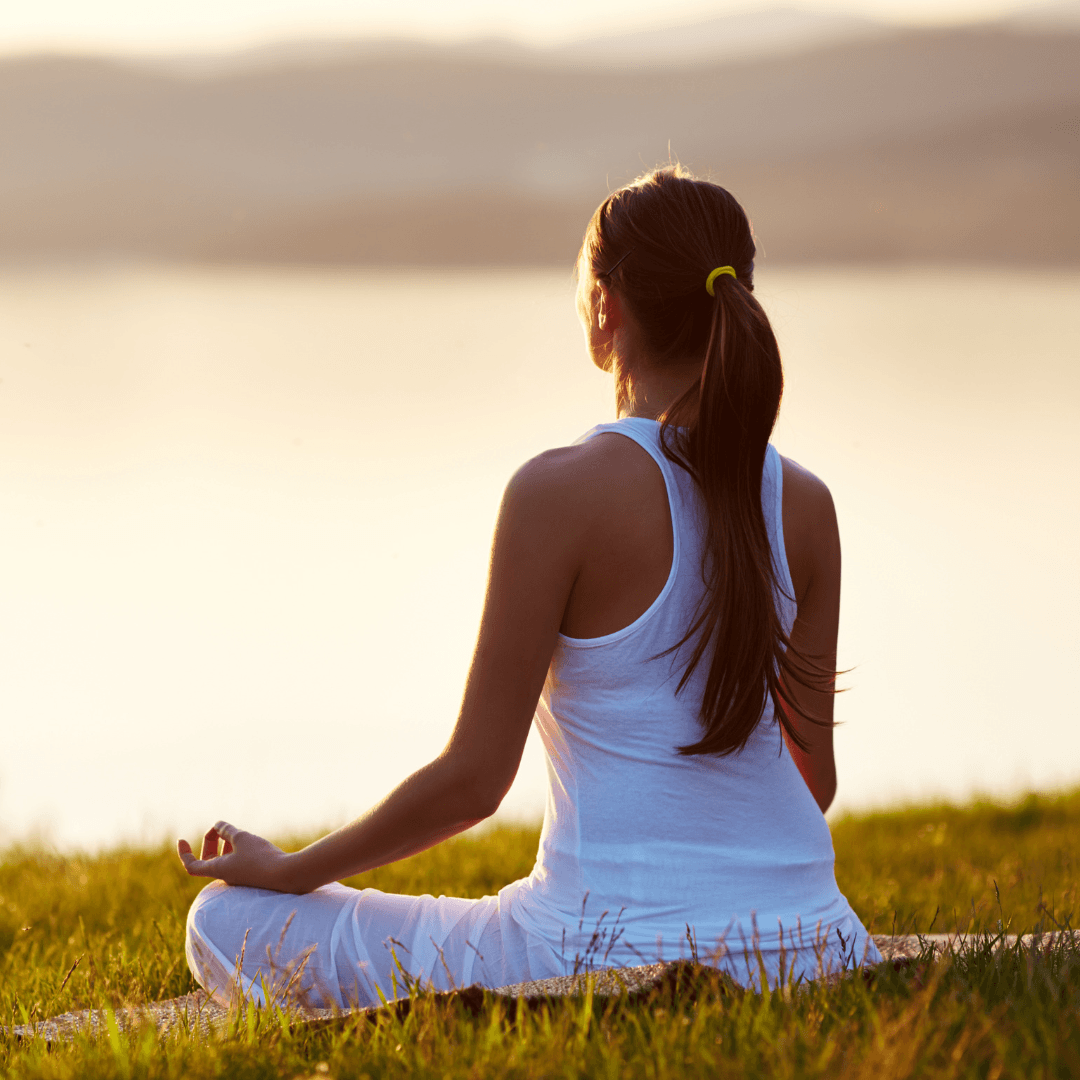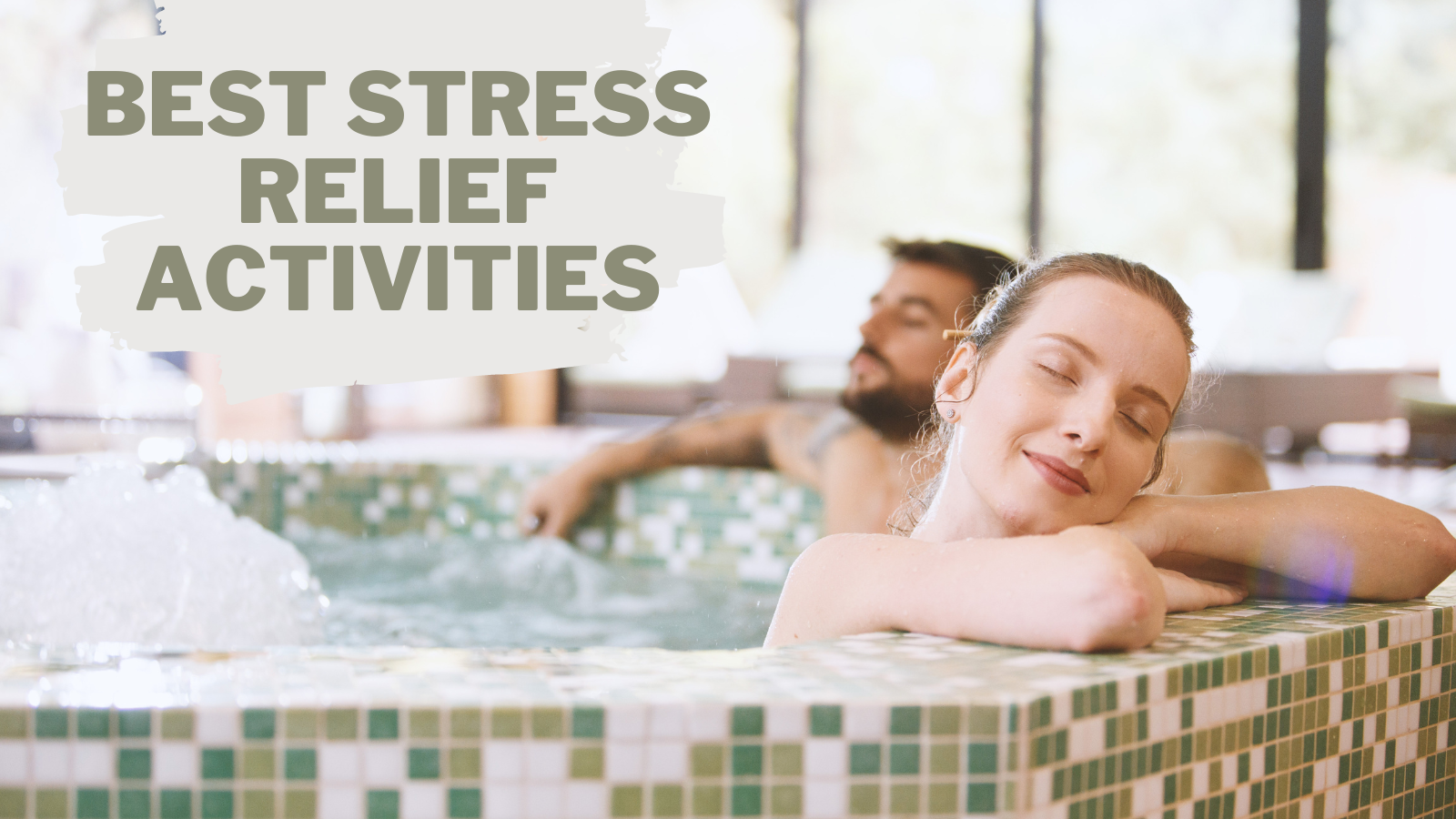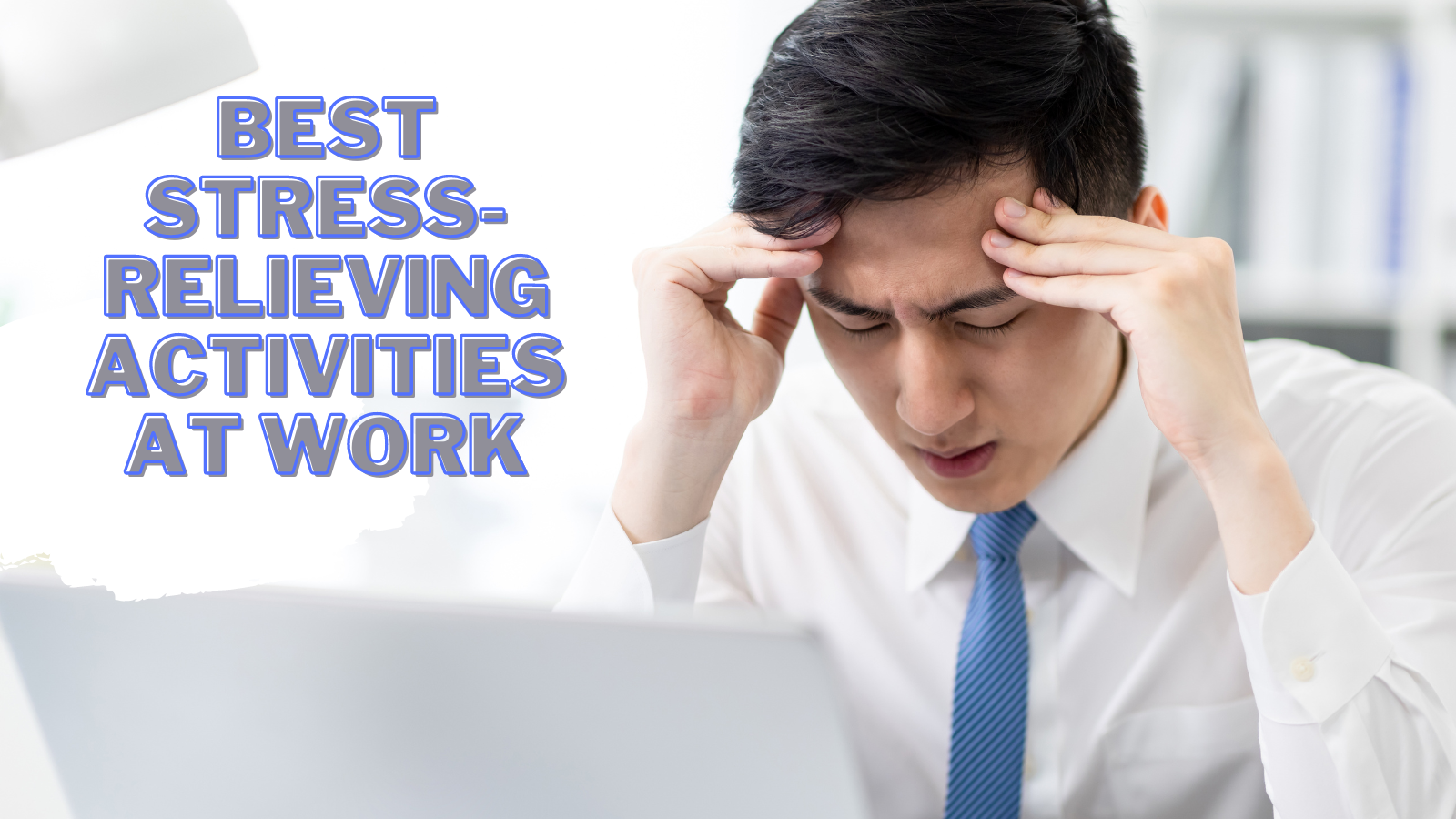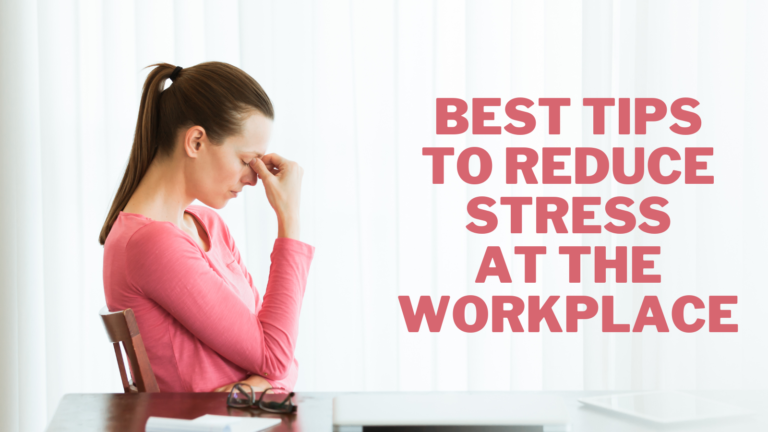8 Best Stress Relief Activities
8 Best Stress Relief Activities
Stress and anxiety are everyday experiences which are part of the lives of most people. It is nearly impossible to avoid the minor challenges and significant crises that may occur as you go about your daily life activities.
However, you can control how you respond to such circumstances. Chronic stress can have a detrimental effect on your overall well-being. Practicing effective stress-relieving activities is essential to calm your body and mind.
Importance Of Stress Relief Activities
Many stress-relieving activities may help you relax and feel more relaxed, so you may wish to invest time in them. We are all engaged in stressful events every day.
These events are often relatively minor but can sometimes overwhelm your coping ability. Many people are stressed by the complications associated with their daily routine.
Such factors include financial problems, inadequate savings, illness, job insecurity, marital or family problems, and other emotional concerns.
These stress-relief activities are meant to help ease your stress while getting a good night’s sleep. Remember that a peaceful, healthy, and restful night of sleep is the best way to begin your day. One of the main reasons people develop mental and physical illnesses is the stress they have had to endure.
You need to be aware that if you want to lead a healthy lifestyle and feel good physically and mentally, you must take steps to deal with your stress.
The good news is that stress relief activities can help you enhance your overall well-being. To keep your stress levels in check, you need to practice stress-relieving activities regularly. Most of these activities are low-cost and require no investment. Some are also relaxing.
Research has shown that just a few minutes of simple relaxation can benefit your brain and improve health. As a result, these activities should be incorporated into your routine.
These activities help you lower your blood pressure, improve your mood and reduce stress. Some relaxation techniques and lifestyle practices can be practiced right away and can benefit you immediately. As a human being, you cannot help but experience and deal with stress.
So, you will have to learn how to relieve and deal with stress when it arises. It is important to realize that stress can be very destructive and is usually a reason for serious psychological and physical health issues.
To address this problem, you must learn how to incorporate stress relief activities daily. These activities are recommended to help reduce the negative impact of stress.
Focusing on stress-relieving activities in your daily life will reduce your psychological and physical tension. Anxiety is known to impact the body’s immune system and compromise your overall health.
Taking a few minutes out of your day to remove yourself from the stressor or problem will help to alleviate some of the psychological distress you may be feeling.
To avoid unnecessary distress, it is recommended that you reduce your stress and build resilience through effective stress-relief activities.
There are many ways to reduce stress. It's also important to remember that we are resilient creatures. We can build resilience and adjust to the challenges that life throws at us.
1. Regular Exercise
Exercise helps improve one's ability to cope with physical and emotional stress. When one exercises, the body produces endorphins, which help relieve feelings of pain and depression.
Regular exercise can help you manage stress by calming your body and easing your mind. You can keep track of your fitness activity by downloading the Activity Tracker app from the Apple Store if you are looking for engaging ways to exercise and run.
Running for half an hour is recommended to relax the mind, decrease stress and gain physical strength. Exercising can be considered an extremely effective stress-relieving activity.
When you exercise, your heart rate automatically slows down, and your breathing rate speeds up. The elevated breathing rate stimulates more blood to your brain, which stimulates calm and relaxed feelings.
Other factors, like sweating and a change in posture, can also trigger this effect. When you get home after a long work day, take a short shower and exercise.
Many useful activities include swimming, jogging, walking, dancing, playing sports, etc. But the most common ones are cycling and jogging.
Regular exercise is one of the best ways to de-stress, stimulate the mind, and improve physical health. You will be pleasantly surprised by how much better you feel after a vigorous workout session, and you will be able to combat all the challenges you face daily.
Exercise has many health benefits, including lowering stress levels and improving well-being. Regular exercise helps build strong, lean muscles, which can reduce the risk of heart disease and cancer.
Exercise also boosts your immune system, which can help protect you from illness. It can also boost your energy level, which can help you get through the day more calmly and relaxed.
Physical exercise is an effective stress-relieving activity that you can do every day. According to Harvard T.H. Chan School of Public Health researchers, 30-60 minutes of moderate-intensity exercise can help reduce your cortisol level. Cortisol is a hormone released in response to stress and is a major cause of chronic stress and anxiety.
When you exercise regularly, you produce less cortisol. Physical activity also releases endorphins.
These are feel-good chemicals that increase happiness and decrease stress and anxiety. Additionally, exercise has a positive impact on mental well-being. It makes you more positive, increases your mood, and improves your ability to focus and think.

2. Meditation
Meditation can be a highly effective way to relieve stress and anxiety because it not only eases your stress but also eases your physical tension. Simply sitting quietly and focusing on your breath or being in a quiet and peaceful place can reduce your stress level. This is especially effective if you have problems with concentration, as this meditation technique can reduce the mental chatter in your mind and quieten your thoughts.
It also enables you to remain centred and relaxed, helping you to relax and unwind. Mindfulness is the cornerstone of stress reduction. But most people feel that learning to meditate is a daunting task because it can be slow and laborious. But with some patience and a bit of practice, it is easier to master the skill. For best results, you should sit in a comfortable place, close your eyes, and focus on your breath.
Maintain this focus for ten to thirty seconds until you feel that you have relaxed and become comfortable with the practice. Furthermore, you can build on this by getting to know your breath and being aware of the sensations in your body. Eventually, you will get a sense of relaxation, which will aid your practice in the long run. No matter what your religion, culture or preference, there is one thing you can all agree on – meditating is amazing.
Learning to develop a greater sense of awareness of the world around you is, for many, one of the most meaningful benefits of meditation. It may be difficult to fit a solid meditation practise into your busy day. That is where our stress-relieving activities of the future come in. Meditation exercises can be as simple as lying on your bed taking deep, relaxed breaths. For those looking for something more concrete, check out one of the many available forms of meditation today.
Meditation can help you reduce stress levels by increasing your positive emotions and decreasing negative emotions. It improves mental clarity and reduces your stress levels and anxiety. There are many different forms of meditation. However, the most common type of meditation is known as mindfulness meditation. It can be practiced in the form of a meditation app, a method you can learn on your own, or in a class at your local meditation studio.
Studies have shown that meditation can help reduce stress and anxiety. The technique has been found to help your heart rate, blood pressure and reduce your feelings of stress and worry. During the period when you meditate, you will discover that your mind will slow down. You may even notice your body feeling calmer and more relaxed.
In addition, you may even experience a sensation of numbness in your body. Sitting still and allowing your mind to drift away from the stressful situations you currently face can be a valuable stress-relieving strategy. It can also enhance your creativity and even help you gain new perspectives. Meditation also increases your ability to concentrate. So, you can turn off your cell phone and watch a movie while sitting meditating.
3. Write Down Things You Are Grateful For
Taking a moment to write down 10 things you are grateful for will help you see the positives in your life. This might seem like a simple thing to do, but your life is made up of all the little things that have happened to you along the way. You probably wouldn't have met some of the most significant people in your life without taking that chance.
Life experiences can lead to great and powerful friendships or partners, which may otherwise have never existed. If you have started to lose your way, it may be time to stop for a minute and spend some time thinking about the good things in your life. Write them down in a journal and read them each night before you go to sleep.
This is one of the most effective stress-relieving activities, which can help you keep a positive outlook and open your mind to new ideas. Write down things you are grateful for, which will remind you about all the good things you have in your life. You can choose any positive aspect from your daily life.
Although you have no control over your day-to-day experiences, you can control your reactions to them. As such, it is necessary to acknowledge the positive things that occur in your life every day. Doing so will help you focus on the positive rather than the negative and make the tough times easier to bear. In other words, write down the things you are grateful for every day, and you will improve your mood and outlook on life.
Make a habit of reflecting on what is good in your life and doing so regularly. This will boost your overall mental health and encourage you to be grateful for the positive aspects of your life. Gratitude is an important tool for managing stress and anxiety. It would help if you wrote down things you are grateful for every morning before leaving your home. You should write down three things you are grateful for each day as well.
It may seem simple to some, but research has shown that having a gratitude practice can help you feel calmer and more motivated in the face of stress. Here are the benefits of practicing gratitude: Increases emotional well-being, reduces anxiety and stress, Increases positive outlook, Increases happiness, and Increases motivation. You can find out more about gratitude at gratitude.com.
4. Spend Time With Your Loved Ones
One of the best ways to reduce your stress levels is to spend time with your loved ones. Spending time with people that you love makes you happy and relaxed. The point is that spending time with your family makes you realize that there is someone to help you through tough times. The same applies to close friends or work colleagues. You do not have to meet up with them for extended periods of time to give them your support.
You can spend hours chatting online or via text or phone. Of course, this should not be the only way you support and care for the people you care about. Spending time with your family and friends is a stress-relieving activity. It is good to talk to your friends and family and resolve conflicts that may arise between you and them. On the other hand, it is important to feel understood by the people around you.
It is equally important to remember that you can't always be with people. It would be best if you took a moment to create some distance between yourself and your partner and family members for some fresh air. Allow your mind to calm down by indulging in deep thoughts. It is also a good idea to engage in activities that are fun for you. It's important to keep yourself engaged in such activities to help you cope better with your daily life challenges.
5. Make Time For Leisure Activities
Anxiety can become a major problem if you do not take time to unwind. Enjoyment and relaxation are crucial to maintaining your mental and physical health. Leisure activities are a perfect way to free your mind and find new ways to reduce stress. They can also take you out of your daily worries. This is when you can focus on other things unrelated to work or other daily activities.
Leisure activities can help you find new passions. If your stress levels are elevated, make sure that you schedule some time for yourself. In other words, you should not allow yourself to go days without having some fun. Try to do something that you would consider fun and exciting. This may include something that you would normally consider a social outing. As an individual, you can choose to make the time available for yourself to engage in leisure activities.
You can find lots of leisure activities that are interesting and fun to engage in. These activities can help to relieve the stress and anxiety that you feel daily. These activities can improve your mental and physical well-being. This will improve your mood and provide you with a positive attitude. You will be more inclined to face the challenges and issues that you face every day.
6. Avoid Procrastination
If you find yourself chronically finding yourself stressed, procrastination is the likely culprit. This chronic habit can lead to mistakes, addictions, illnesses, or other detrimental situations. Procrastination can severely affect your life if you allow it to continue. Allowing procrastination to derail your life, however, is an irreversible and ineffective decision.
It would be best if you avoided this habit at all costs. Getting started on the right path is important, but putting off important tasks is a sure path to stress and negative thinking. Procrastination will lead to procrastination, which means you'll have to start over when you actually get around to the tasks at hand. If you spend too much time on the back burner, you might never get around to them.
So, avoid this sort of stress-causing behaviour and make some important decisions, now. Research has found that procrastination often increases your stress. In addition to feeling more stressed, you can lose out on valuable work opportunities if you put off assignments, which is highly frustrating and tiring.
Procrastination can be a major source of anxiety and depression, which is why it should be avoided at all costs. Instead, you should develop a habit of completing important tasks as soon as you can. You should also prioritize the most important tasks to you, which you can do by planning them carefully.
7. Do Something Tactile
When you are under stress, it is normal for your mind and body to become restless, restless, or repetitive. A good way to combat these feelings is to do something tactile and avoid reaching for a screen. Take a bubble bath, try putting on warm slippers, or take a long hot shower. These activities can help put your mind at ease.
Stress and anxiety often accompany sensory experiences. You may want to find a calming sensory activity that relieves you of your stress. One way to do this is to find something that is satisfying. It could be an intricate book or a picture of a vacation, or a beautiful landscape. You may even feel best after reading an excellent book.
A soothing activity will provide a form of physical and mental stimulation and relief, which can relieve you of your stress. To relieve stress, you should reach for some tactile experiences in your day-to-day life. Think about a game that you could play with your hands to reduce the tension. Try to hold a pen and write notes to yourself. If you can’t hold a pen, try holding a damp washcloth to your wrists. Even a simple conversation with a friend or loved one can be a powerful stress reliever.
8. Give Yourself A Massage
This is a great stress reliever that is pretty affordable, and you do not need to spend a fortune to do it either. Start with a light massage. For the deeper tasks, opt for a professional therapist. This is an excellent way to reduce tension, reduce aches and pains, and ease headaches.
One of the best ways to lower stress and improve your overall health is to give yourself a massage at least once a week. A massage is a wonderful way to ease stress and help you to relax. If you don't feel comfortable giving yourself a massage, ask your friend or family member to give you one. The best thing you can do for your body and mind is to give yourself a good massage.
This is because it gives you a chance to take some time off from your busy schedule and be at peace for a while. Make sure you visit your favourite spa or masseuse so that you can get a professional massage. You can even get a quick neck massage with a soft towel. That’s because massage reduces muscle tension and pain. This, in turn, relaxes your muscles and relieves tension in your body.
Conclusion
Every day, you are faced with a variety of stressful situations. You have several choices as to how you choose to deal with these stressful moments. You can engage in some basic exercises to maintain your physical and mental health. Alternatively, you can choose to spend more time with family and friends to improve your sense of well-being and to minimize the impact of stress on your mood.
I trust you enjoyed this article about the 8 Best Stress Relief Activities. Please stay tuned for more blog posts to come shortly.
JeannetteZ
>>>Please click here to read my all-inclusive article about Lessons That Will Teach You All About Stress<<<
>>>Are you interested in Natural Healing And Stress Relief through Herbs? Please click here for my #1 Recommendation<<<
Your opinion is important to me.
Thoughts? Ideas? Questions? I would love to hear from you. Please leave me your questions, experience and remarks about the 8 Best Stress Relief Activities in the comments section below. You can also reach me by email at Jeannette@Close-To-Nature.org.
Disclosure
This post may contain affiliate links. I earn from qualifying purchases as an Amazon Associate and other affiliate programs. Please read my full affiliate disclosure.
You might also enjoy these blog posts:
Effective Stress Relievers For Your Life
Best Simple Ways To Relieve Stress And Anxiety
8 Best Ways To Stop Worrying About Health
9 Best Ways To Relief Stress With Nature
8 Best Tips To Reduce Stress Naturally















